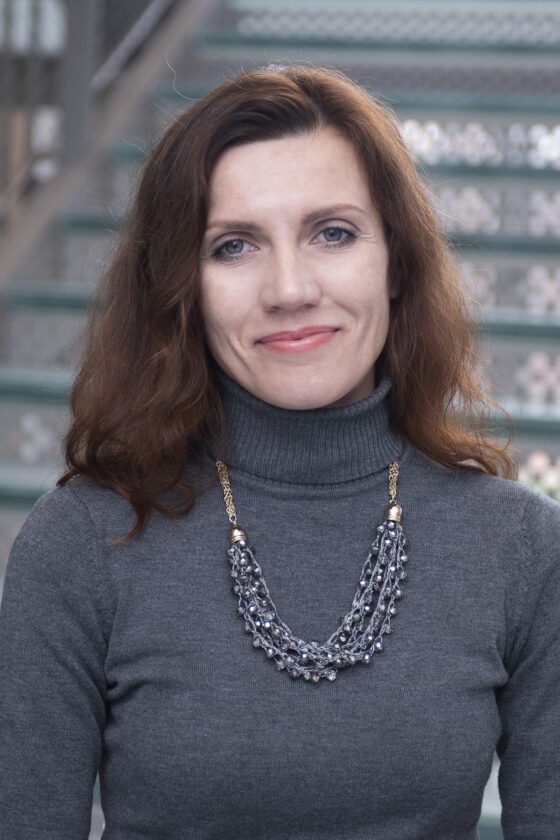Elon Musk’s ‘Ukraine-Russia Peace’ and Kremlin propaganda

Nataliya Shpylova-Saeed
On Oct. 3, Elon Musk posted on Twitter a “Ukraine-Russia Peace” that includes the redo of the referenda in the Ukrainian regions annexed by Russia; the recognition of Crimea as part of Russia; the water supply to Crimea; and Ukraine’s neutral status.
In response to this Twitter post, Ukraine President Volodymyr Zelensky started his poll and asked the followers which Elon Musk they like more: the one who supports Ukraine or the one who supports Russia.
Musk’s peace plan went out to the wrong addressee. Russia is an aggressor that launched an unprovoked assault against Ukraine in 2014, which escalated to extreme violence after Feb. 24, 2022. But Musk addresses Ukraine. This plan undermines the country’s political agency and further promotes imperialist thinking after Russia’s longstanding dominance in international relations and its more recognizable international and business role compared to other post-Soviet countries.
The planning of the “redoing” of referenda shows little understanding of the situation in the regions devastated by Russian occupation — specifically Kherson, Zaporizhzhia, Donetsk and Luhansk. In 2014, many residents of Donetsk and Luhansk left. Over the last seven months of Russia’s full-out war on Ukraine, the population of Kherson and Zaporizhzhia significantly decreased.
To explain the inappropriateness of new referenda is in itself irrelevant. Russia violated Ukraine’s integrity, repeating its 2014 scenario in Crimea, by imposing sham referenda this fall. Even under U.N. supervision, the redo of the referenda legitimizes the Kremlin’s criminal acts against Ukraine and Russia’s continuing imperial territorial ambitions.
Crimea is not “formally part of Russia.” Only Russia’s legislative system, which continues to violate international agreements, unambiguously acknowledges Crimea as one of Russia’s federal districts. The transfer of the peninsula from Soviet Russia to Soviet Ukraine in 1954 was in part prompted by the disastrous economic and agricultural conditions of Crimea. It was far from being the sole decision of Nikita Khrushchev. Moreover, by mentioning that the transfer was “Khrushchev’s mistake,” Musk’s plan plays into the Russian propaganda that constructed the narrative about “Russian Crimea,” which was presented to Ukraine by Khrushchev as a “gift.”
On Crimea, Musk adds that the peninsula has been part of Russia since 1783. An important detail is left out: Crimea, when controlled by the Crimean Khanate, was annexed by the Russian Empire, violating the Treaty of Kuchuk-Kainarji.
According to Musk’s plan, Ukraine should remain neutral. This point regurgitates myths created by Russian propaganda that presents NATO as an organization that brings an existential threat to Russia. It encourages further propaganda by bringing up the possibility of a nuclear war if Ukraine does not reconsider its policies.
Today, parallels are drawn between the current war and World War II. Putin’s tactics remind us of those employed by Adolf Hitler. His strategies to control domestic and foreign affairs invoke the memory of the Stalinist regime.
Among many profound differences between these wars, mass media is one of the major weapons of today’s hybrid warfare. All leading channels across the world report on the Russian offensive campaign. The militaries engaged in combat and the residents who experience the war firsthand film numerous tragedies that reach the viewers instantaneously.
In addition to making the public aware of the crimes committed by Russian troops in Ukraine, the films also produce an effect of immediate participation in the war. With this illusion comes another one — the illusion of understanding what is going on on the ground. This annuls the necessity to get better informed on the history of Ukraine and Russia, as well as on what makes these two countries profoundly contrasting. Russia keeps trying to realize its plan to invade Ukraine. Ukraine, on the other hand, fights for freedom, democracy and independence.
Musk’s “Ukraine-Russia peace” that feeds on and plays into the Kremlin propaganda provokes further atrocities. These misinformed suggestions also dismiss the lives of those in Ukraine who have been killed or tortured by Russians. Finally, the rhetoric of Musk’s plan makes Ukraine, not Russia, responsible for the past and present horrors of the current war. A generous gift that Putin and his regime will certainly welcome.
Nataliya Shpylova-Saeed is a visiting assistant professor in the Russian and Eurasian studies program at Colgate University. She wrote this for InsideSources.com.
